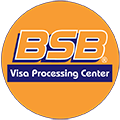FAQs

Frequently Asked Question
& Answer Here

The best travel destinations vary based on personal interests, but popular choices often include cities like Paris, Rome, Tokyo, and natural wonders like the Grand Canyon or the Great Barrier Reef.
To plan a budget-friendly trip, consider traveling during off-peak seasons, using price comparison websites for flights and accommodation, opting for budget accommodations like hostels or Airbnb, and researching free or low-cost activities at your destination.
Essential travel documents include a valid passport, visas (if required), travel insurance, and any necessary vaccination certificates. Requirements vary by destination, so it's crucial to research and prepare accordingly.
Safety precautions include researching the safety of your destination, staying informed about local laws and customs, securing your belongings, avoiding unsafe areas, and registering with your embassy or consulate if necessary.
You can book flights and accommodation through various online platforms such as airline websites, hotel booking websites, or travel agencies. It's advisable to compare prices and read reviews before making reservations.
To save money while traveling, consider using public transportation, cooking your meals instead of dining out, participating in free activities, using travel rewards programs, and avoiding unnecessary expenses.
Packing essentials include clothing suitable for the destination's climate, personal hygiene products, necessary medications, travel adapters, important documents, and any specific items needed for planned activities or excursions.
To stay healthy while traveling, maintain good hygiene practices, stay hydrated, get enough rest, eat balanced meals, be cautious with street food, protect yourself from the sun, and consider vaccinations or preventive medications if traveling to high-risk areas.
Cultural norms vary widely between countries, so it's essential to research and respect local customs regarding greetings, dress codes, dining etiquette, tipping practices, and behavior in public places.
The top tourist attractions and activities depend on the destination but may include landmarks, museums, outdoor activities, cultural experiences, and culinary adventures. Researching popular attractions and reading reviews can help prioritize your itinerary.
BSB employs a systematic approach, ensuring your visa process is efficient and hassle-free while understanding the emotional significance of your travel.
Yes, BSB efficiently manages visa applications for multiple destinations, streamlining the process for your convenience.
Absolutely, BSB understands the urgency of travel and provides expedited services when needed.
BSB offers guidance on visa extensions, ensuring you have the necessary information and support well before your current visa expires.
Certainly, We goes beyond visa processing, offering travel planning advice to make your journey even more memorable.
BSB is committed to providing support for travelers with special needs. Contact us in advance to discuss your requirements.
Yes, occasionally we offers promotions or discounts. Check our website or contact us for information on any ongoing offers.
BSB provides a tracking system on our website, allowing you to check the status of your visa application at any time.
BSB employs a systematic and efficient approach, ensuring a seamless and stress-free visa application process for our clients.
To stay connected while traveling internationally, consider purchasing a local SIM card, using international roaming services provided by your mobile carrier, or relying on Wi-Fi hotspots available at hotels, cafes, and public areas. Additionally, messaging apps like WhatsApp or Skype can help you communicate with friends and family for free over Wi-Fi.
In case of emergencies or unforeseen circumstances during your trip, it's important to have a plan in place. Make sure to have travel insurance that covers medical emergencies, trip cancellations, and lost luggage. Keep important contact information handy, including the nearest embassy or consulate, local emergency services, and your travel insurance provider. Additionally, inform trusted contacts about your itinerary and regularly check in with them. If you encounter an emergency situation, follow local protocols and seek assistance from authorities or medical professionals as needed.






